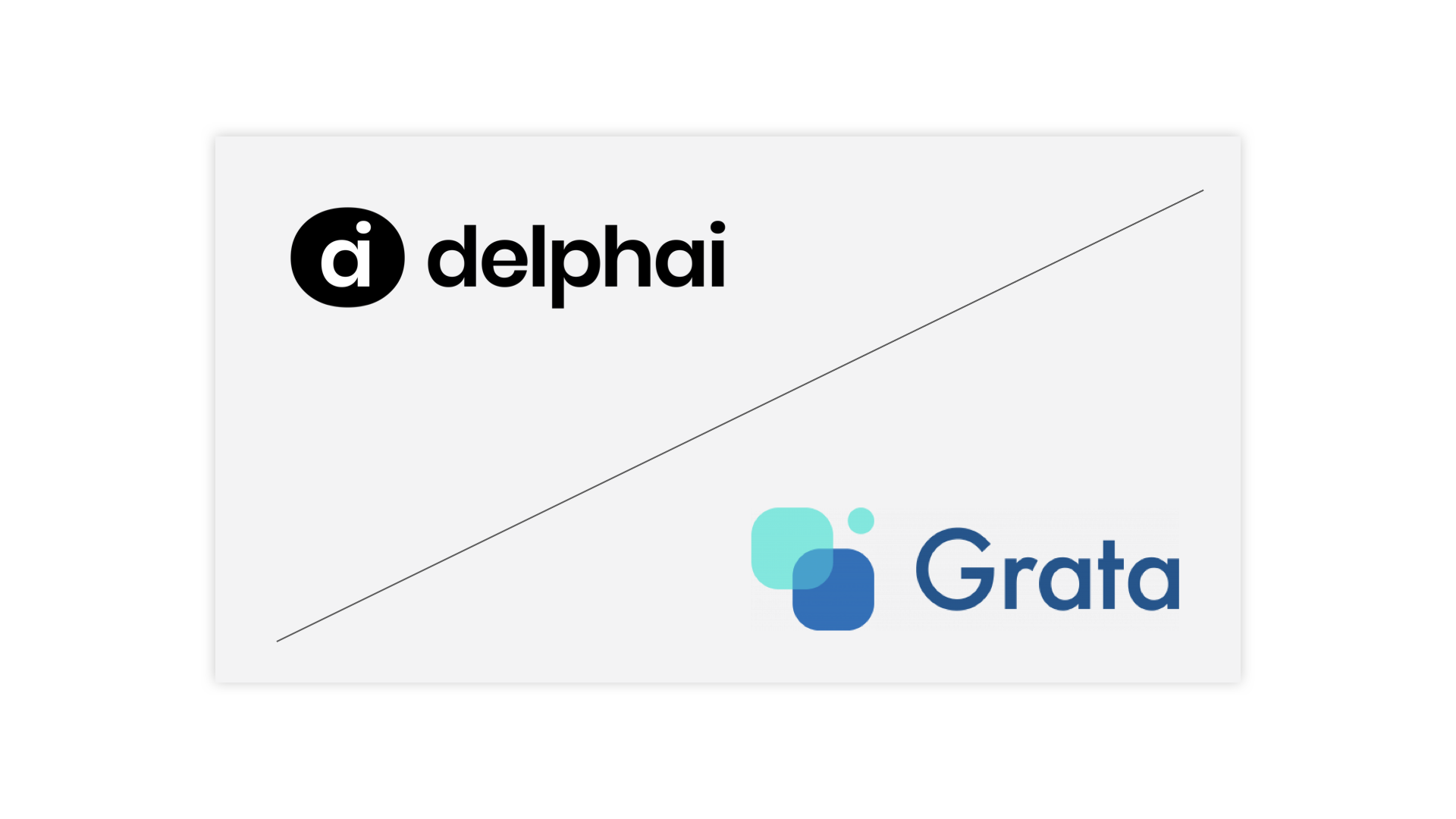Why more and more companies are switching to delphai
For companies that rely on accurate and actionable firmographic data, ensuring that they are using the best tool is a crucial strategic decision. But is Grata the best choice? Or would M&A teams be better off considering delphai as a more comprehensive Grata alternative? delphai vs. Grata: In this article, we will explore the similarities and differences between these two platforms, with the goal of providing readers with insight into which intelligence provider might better meet their needs.
Founded in 2016, Grata claims to be “the leading data engine for private companies.” That sounds like an ambitious proclamation, so we want to take a closer look. Since delphai is an innovative alternative to Grata and serves many of the same purposes, let’s explore which tool outperforms the other.
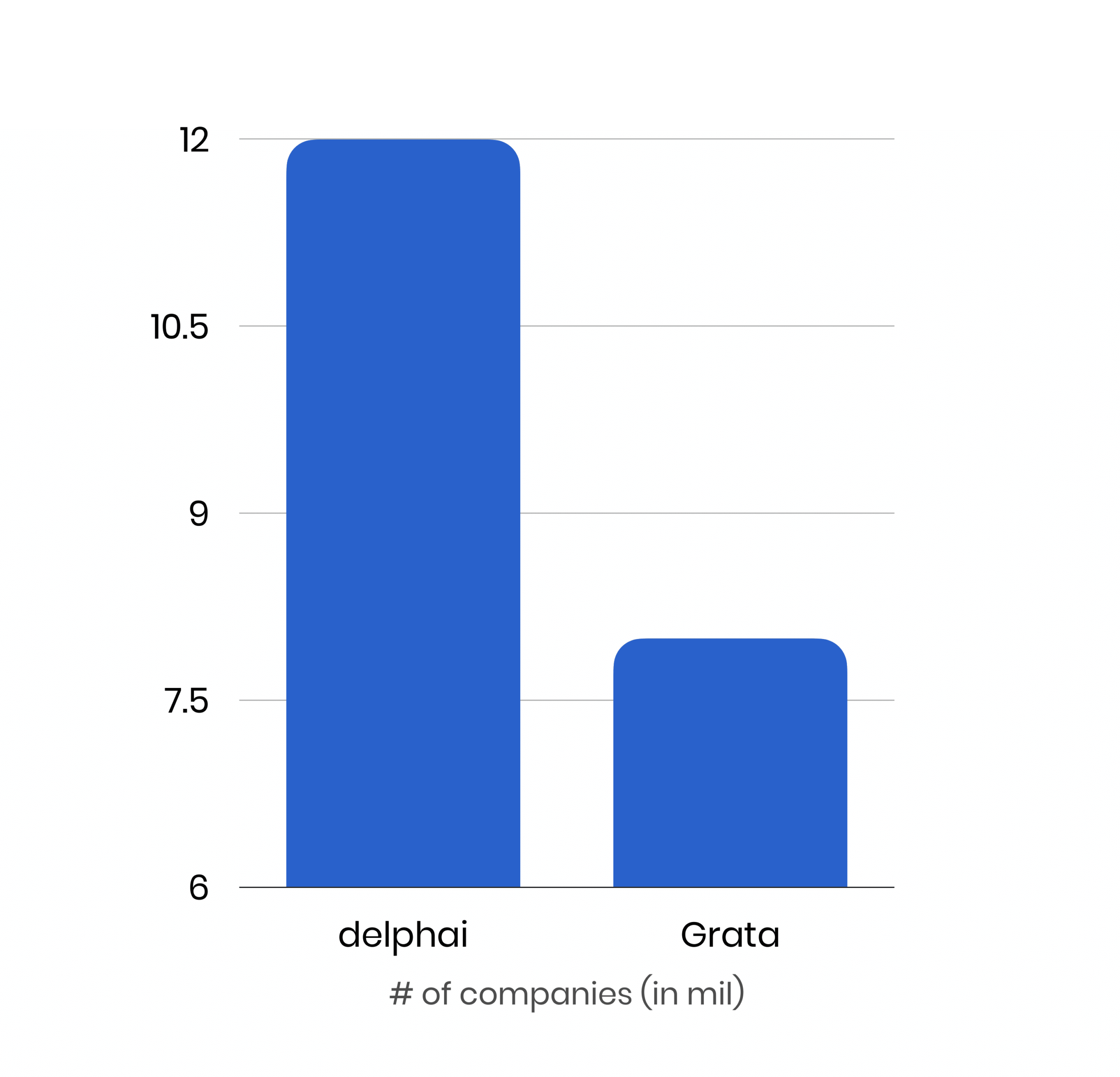
It’s interesting to look at the size and quality of Grata’s database as they are calling themselves a “leading data engine,” in B2B. Grata’s platform includes 8.5 million companies and associated firmographic data, which gives the impression that Grata could be an attractive platform for B2B use cases. delphai’s database, on the other hand, includes almost twice as many companies, over 12 million. The database is larger and more comprehensive than Grata’s and also covers many more industries/market segments. Users of delphai can search the database and create targeted company lists based on the outstanding functionality of full text search as well as numerous filters, including industry, geographic region, year founded, and more.
Accuracy
Grata uses corporate websites as the primary data source to identify the essence of a company. Qualitative factors are considered, divided into groups such as products, functions, and target industries, as well as quantitative factors such as size and financing. Grata also states that more than 100,000 company profiles are updated daily.
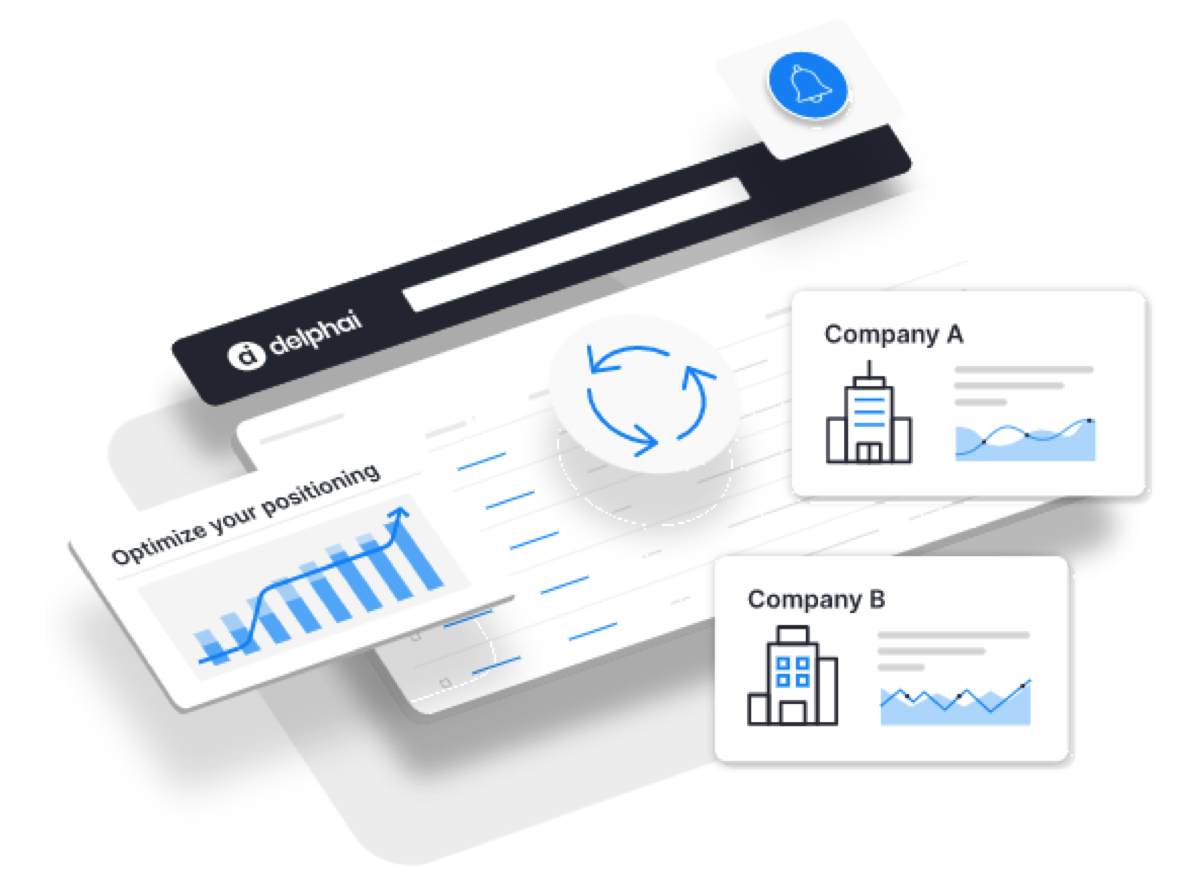
delphai’s AI, on the other hand, acts as a data integrator to create comprehensive fingerprints of millions of companies around the world from multilingual, open, and diverse data sources (such as news, press releases, conference attendance, patents filed, and company websites). In this way, customers are offered the most accurate and up-to-date data available. In addition, delphai’s similarity analysis can easily and accurately identify target companies, automate manual searches, and integrate data-driven results. In addition, the extensive AI tool updates data automatically, making delphai superior to Grata in terms of both data volume, and data quality.
But who has the more accurate data now? When conducting multiple sample searches in our delphai vs. Grata case study, delphai outperforms with their number of companies covered, quality of data and features like the similarity search or the API data enrichment. Essentially, delphai showed more companies with more accurate data.
Market Focus
Grata can be a good resource for individuals looking for companies in the mid-market segment. Here, Grata provides compelling company profiles with information gathered from the company’s respective website. Grata’s data points are business owner contact information, business size, location, industry, industry map. Interestingly, Grata also translates terms such as “customized solutions” on a company’s website into the term “service company” and words such as “platform” into “software company”.
delphai’s market focus is more broad as the platform offers an AI data management suite with which you can achieve organic or external growth, identify investment potential, find new customers, and secure a competitive advantage. Thus, based on global information sources (e.g. conference attendance, patents filed, press releases and company websites), a 360° digital fingerprint of your target company can be created.
Provenance & Compliance
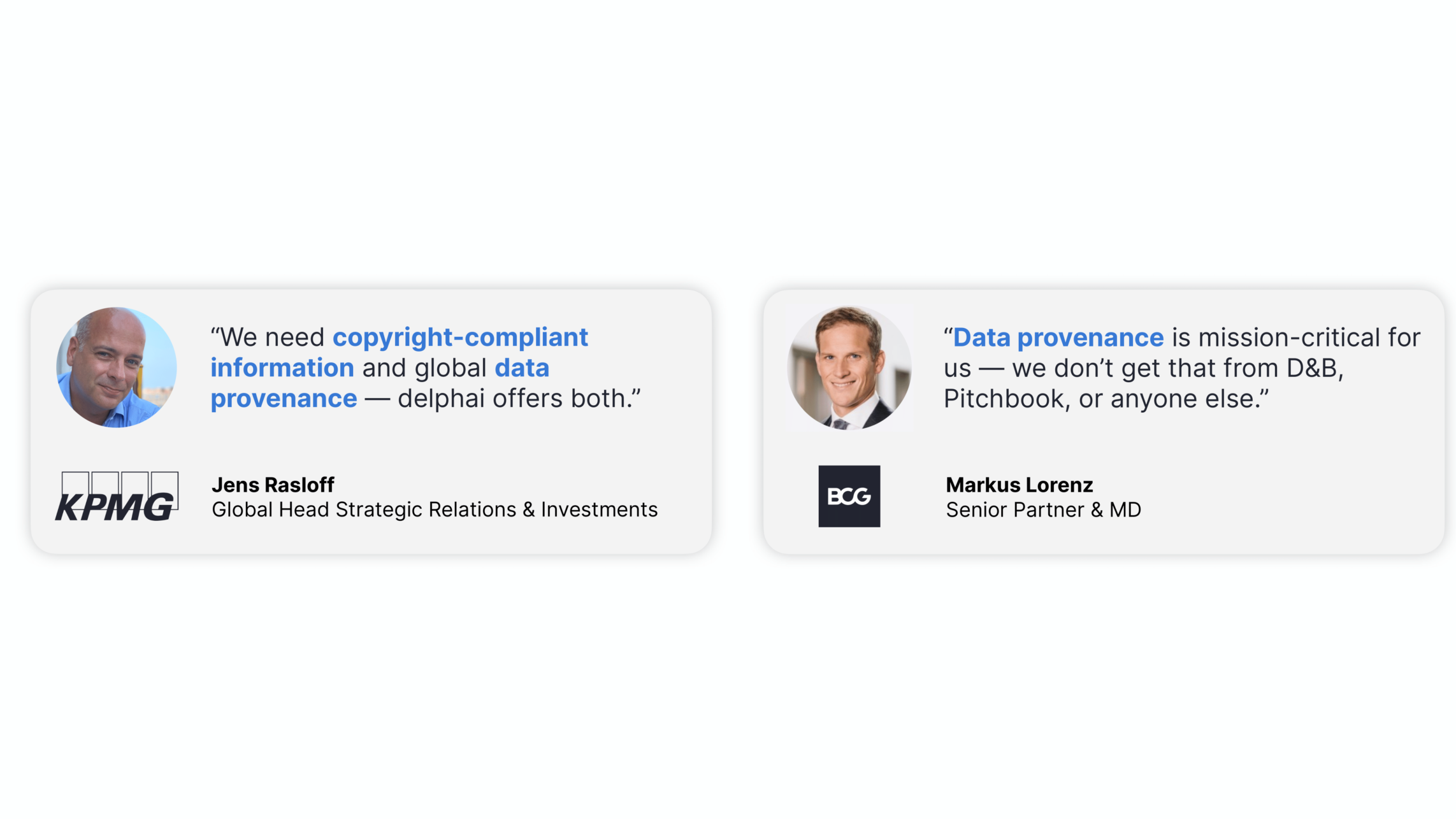
When it comes to provenance in the delphai vs. Grata case study, delphai scored a big point. With delphai, you get data you can track and trust. Provenance is a pillar of delphai’s data observability so you can track where the respective data comes from to evaluate its quality. This is the reason why it is so exciting that delphai offers full data transparency. No other platform has or can give you full access to their data. This is not normally possible due to manual compilation), so you can be sure that you never make decisions with bad data. Furthermore, all of delphai’s data follows the EU Copyright Directive to ensure that their company descriptions and texts are copyright compliant. So you and your team can use all texts, classifications and graphics you find on delphai in any way you want.
Grata on the other hand does not offer any information on data transparency, compliance or provenance which makes it very difficult for the user to estimate where the data comes from and how it can be used.
Geographic Focus
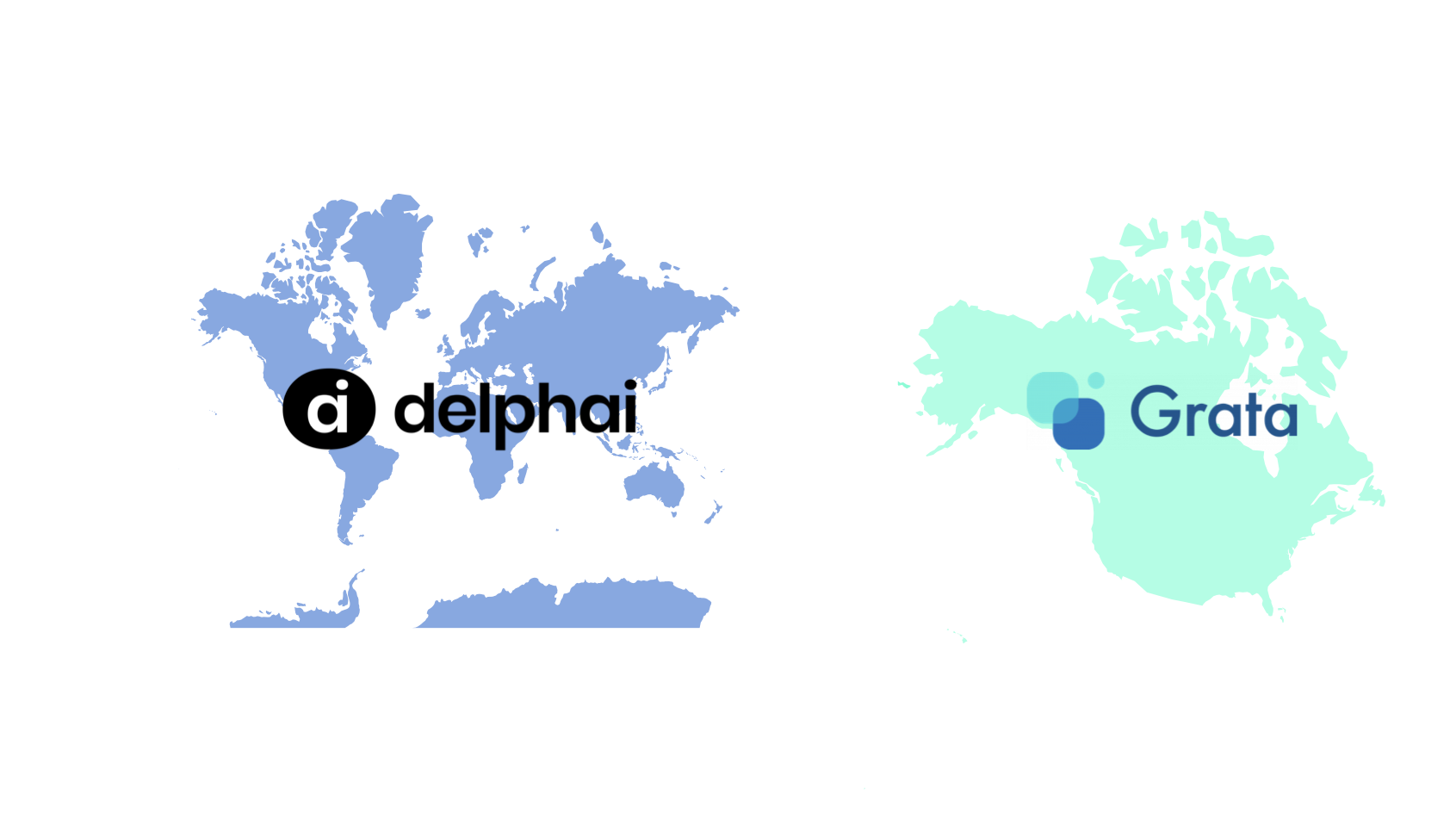
One of the biggest challenges users of Grata’s technology will have to face is the geographic focus the company puts on the US and therefore its limitation to provide data on the global market. They do include some global company data but users looking for comprehensive global data will have to go find alternative tools to find global company intelligence. delphai excels here with its international focus providing comprehensive data of millions of companies around the world from multilingual, open, and diverse data sources.
Integrations
Grata integrates with Salesforce, Hubspot and DealCloud. delphai currently integrates with Slack, Airtable, and via direct API to respective no-code/lo-code platforms. More integrations such as MS Teams, Dimensions and Salesforce are coming this year. Slack commands enable users to use delphai without having to leave Slack. There’s no closing down tabs or switching between applications. This way productivity and collaborations are increased while providing a consistent experience. Airtable is a great tool to use with delphai to automatically move information from delphai to Airtable. This way, you can access complete company profiles, explore individual data verticals like patents, conference attendance or news, receive on demand updates and gain access to AI-generated, copyright compliant company descriptions – all without leaving Airtable.
To sum up
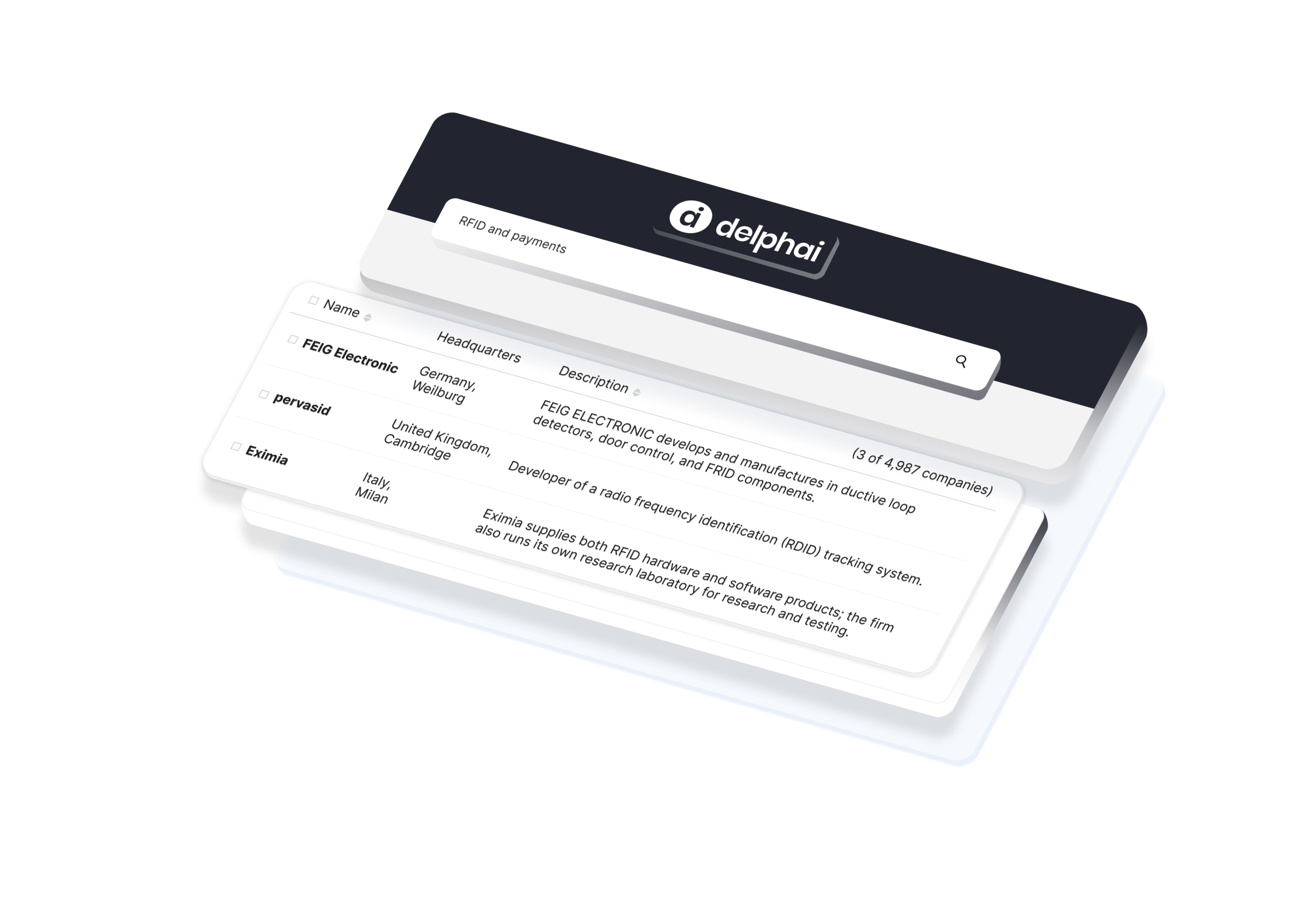
delphai vs. Grata summary, Grata stops short, by only turning the unstructured data into semi-structured data (e.g., text snippets). delphai goes all the way — by turning it into fully structured, machine-readable data. Additionally delphai has a larger database (more than 12 million companies) and offers a unique full-text search technology and instant data provenance. Thanks to strict compliance with the EU Copyright Directive, you and your team can use all the text, classifications and graphics you find on delphai in any way you want. Considering all these advantages, delphai clearly outperforms Grata and emerges as the clear winner in this head-to-head comparison.
Interested in learning more? Request a demo here
